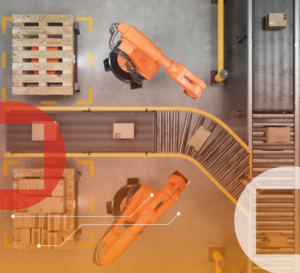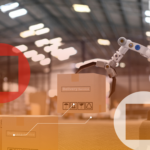
Supply chain management is an ever-evolving landscape requiring businesses to stay competitive and resilient. In recent years, integrating artificial intelligence (AI) into supply chains has promised to increase just this.
AI technologies play a crucial role in reshaping traditional practices and offering enhanced efficiency, reduced costs and improved decision-making. As more and more businesses turn to these cutting-edge technologies for optimization, the journey toward a more agile and responsive supply chain is not without its challenges.
Navigating these challenges is essential for businesses seeking to unlock a full spectrum of benefits AI offers in supply chain optimization. Here, we’ll explore and provide insights into the benefits and challenging factors to consider in incorporating AI. And aim to empower organizations to leverage AI effectively, fostering resilience and competitiveness.
Benefits of incorporating AI
Although AI algorithms analyze your business’s individual historical data and real-time information to predict demand accurately. Helping to optimize your inventory levels, reduce stockouts and improve customer satisfaction by ensuring products are available when needed. Even through seasonality, lead times, and supplier performance, which leads to reduced carrying costs and minimizes risks of over or understocking.
AI tools can even use your data along with an assessment and monitor your supplier’s performance. These tools can assist in making data-driven decisions regarding sourcing and supplier relationships. And ensure your business maintains a reliable and efficient supply chain.
Additionally, AI can provide benefits to your warehouse space. By using robotics, autonomous vehicles, and intelligent picking systems, AI can enhance efficiency, improve order fulfillment processes, and minimize errors for your business.
The advantages of using AI-powered technologies extend beyond internal operations. For instance, it can improve route optimization by suggesting different routes based on factors such as traffic conditions, weather forecasts, and delivery priorities. This, in turn, leads to cost savings, reduced fuel consumption, increased safety for your drivers, and faster delivery times.
Factors that seem out of your business’ hands, such as geopolitical events, natural disasters and market trends, can be analyzed and proactively identified so there are no disruptions with the help of AI tools. Allowing your business to implement risk mitigation strategies and maintain stability in the supply chain.
Factors to consider if you are considering incorporating AI into your business
Though there are significant advantages to integrating AI into supply chain management practices, businesses must navigate several challenges. By recognizing and proactively addressing these challenges, businesses can successfully and sustainably incorporate AI into their supply chain management practices.
With a strategic approach requiring careful consideration, here are a few factors to consider before integrating AI into your business:
- Clearly define your organization’s business objectives and determine what value AI can bring and how AI can help you achieve these goals.
- Assess the availability and quality of your organization’s data. Ensure it is clean, relevant and represents the optimization results you are aiming for
- Determine factors such as storage capacity, computing power, or if upgrading or investing in necessary infrastructures may be required to support AI technologies
- Evaluate whether you have the resources for training and if your team possesses the skills and can adapt to change and restructure of implementing and maintaining AI systems.
- Understand the regulatory compliance standards relevant to your industry and region. Aligning with compliance, legal, and ethical standards of data protection and privacy regulations toward sensitive data is crucial.
- Develop a thorough cost-benefit financial analysis of AI integration to determine if the expected benefits justify the investment. Including upfront costs and ongoing maintenance.
- Recognizing new technologies comes resistance to change, and a potential cultural and ethical shift. Create a plan to address any resistance or concerns and provide training to ensure they can effectively adapt to the AI systems.
- Assess which technology is right for your business and can achieve your organization’s needs and goals.
- Prioritize cybersecurity and securing AI systems from potential and unauthorized threats. Due to the amount of sensitive data, implementing vigorous cybersecurity will protect against data breaches and other security risks.
Although there are some challenges, integrating AI into supply chain optimization has many benefits that can’t be ignored. As technology continues to advance, AI will become even more important in shaping the future of supply chain optimization.
Check out our content center for more insights on automation trends. Also, download our Implementing automation checklist for what else you may need to consider.



